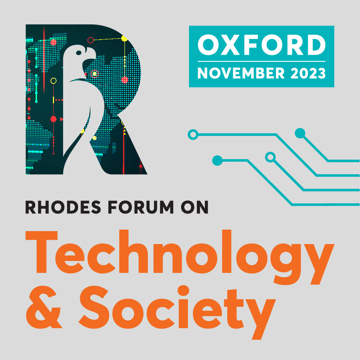2023 Rhodes Forum on Technology & Society

Description
Embracing a new era of technology, the second annual iteration of the Rhodes Forum on Technology and Society delves into the heart of Purpose-Driven Technology in the 21st Century, where impact has value for people, the environment and society. In an age where technological strides continuously redefine our boundaries, this year's Forum seeks to unravel the interplay between innovation and intention.
The world is changing fast. AI handles everything from simple tasks to creative feats, biotech is revolutionising healthcare, and technology is reshaping defence strategies. In this era of rapid progress, we're shifting the focus from just speed and size to a technology with a clear sense of purpose.
Join us at the Forum to explore the fusion of innovation and intention. Through keynotes, panel discussions, and opportunities to connect, the Forum will explore a range of perspectives from across cultures and disciplines, creating a conversation that welcomes technologists, policymakers, and leaders from around the globe.

